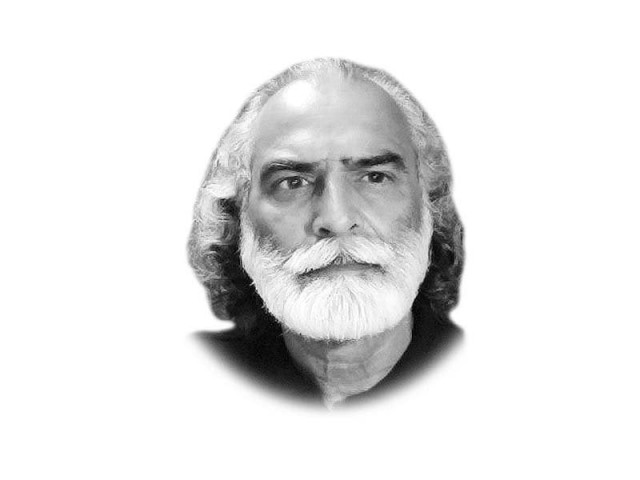Thinking of free and fair election
We must not forget that for the greater part of history, people have not been ruled by military dictators

Since I have come to London in late June, every individual of Pakistani-origin who I met has asked me: will general election in Pakistan take place on time? And will it be free and fair? Often, I would pose a counter-question: what do you think? And sadly I have not met even one person who thought the country would have credible polls. Then why are they so much concerned about an election that in their view would not be free and fair? I think most people believe in having issues resolved through peaceful manners — negotiations. Getting worried on an election, perceived to be dubious, is natural, besides being a sign of political consciousness of the public.
For a variety of reasons, Pakistan has never had a smooth and unhindered process of electing leaders every five years — something that has damaged the trust of the people in the electoral process. Our country has gone through numerous crises since its birth but the current politico-economic crisis is perhaps the longest and multi-faceted. And it has shaken the foundations of key state institutions.
But it is not as simple as it appears. Humans respond to emerging situations differently based on their interests, upbringing, education, psychology, ideology, culture, etc. Yet, public consensus on having a democratic system to run the country is a sign of maturity. Amid the prevailing circumstances in Pakistan, there are apprehensions over the fairness of the forthcoming general elections, but a majority of the people still want to exercise their right to franchise so as to be able elect the leaders of their choice.
Even though run under a constitution, Pakistan has seen military generals at the helm of affairs — four times during the 76 years of its existence. Each time there was a martial law, a set of politicians was there to side with the men in uniform. But that explains the puzzle only partially.
Consider this. Almost always we are told that the Constitution — a social contract between the citizens and the state — is supreme. Therefore, every citizen and every state official and institution must respect this social contract and act accordingly. But we have seen the Constitution violated by the powerful many a time. For instance, the Election Commission didn’t hold the election to Punjab Assembly on 14th May 2023 in sheer violation of the Supreme Court order. And on top of that the violators were not held to account either. But that is just the tip of the iceberg. Not just that the people are not given their right to franchise, they suffer from injustices almost every day, but they can’t even react. While their anger keeps piling, they wait for elections to take revenge. But here too, they are unable to vent out their anger as the elections are mostly managed from behind the scenes. Hardly ever have we had an election that can be cited as free and fair.
Now let’s come back to the main theme of this piece: will the general election be held on time? Well, no one can say with certainty if the general election will be held within the constitutional timeframe even though manipulation, gerrymandering and pre-poll rigging have already begun. As ever, the political arena is being cleansed of unwanted political elements by the powers-that-be. And one thing that can be said with certainty is that unless the objective of keeping some unwelcome contestants out of the race is totally achieved, there can be no elections. How can then such an election be called free and fair!
Realists would argue that “all politics is a struggle for power, and the ultimate kind of power is violence; and it is the state that has monopoly over means of violence.” Therefore, those representing the state can use violence when they feel their interests are in danger. But what the realists tend to ignore is that constitutional restrictions on the use of violence are also a reality. Unrepresentative power centres in our country have dismissed elected governments many a time, but since they never had the legitimacy to do so, they were eventually forced to hold elections and leave power to the elected representatives — something that does give hope to the people that Pakistan is destined to become a democratic nation.
Moreover, we must not forget that for the greater part of history, people have not been ruled by military dictators. Out of the 195 countries of the world, only a few have allowed dictatorship. Rather than wondering about the future of election, there is need to make whatever contribution we can to make the election happen. Don’t forget history is on our side.
Published in The Express Tribune, August 7th, 2023.
Like Opinion & Editorial on Facebook, follow @ETOpEd on Twitter to receive all updates on all our daily pieces.














COMMENTS
Comments are moderated and generally will be posted if they are on-topic and not abusive.
For more information, please see our Comments FAQ